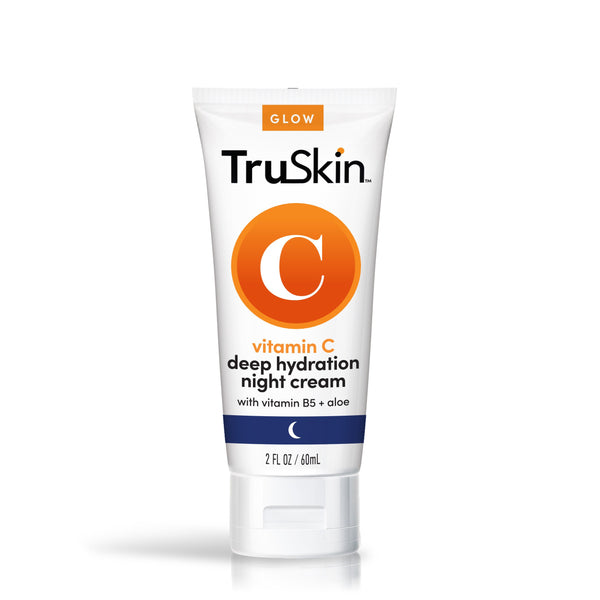
5 Ingredients Dry Skin Can’t Live Without
What can you do to counteract dry skin and the flakiness, itching and irritation that often comes as part of the package? Well, we believe what you put on your skin can make a real, difference…
If you have dry skin you’ll know that finding an awesome moisturizer is like discovering your perfect hairdresser. A veritable ‘eureka moment.' But not an easy one to accomplish, that’s for sure. So, why is this the case? Well, it’s confusing business. Firstly, skincare ingredients come and go thanks to technology, trends and the opinions of influencers and A-listers. Remember when snail slime was the future of ageless skin? Yeah, it didn’t last. Also, dry skin can be sensitive to certain ingredients, taking umbrage to the likes of synthetic fragrances, sulfates, parabens and the like, making it hard to find products that don't make your skin sting or become irritated.
This is why we believe it’s super important to know which ingredients to look out for when moisturizing dry skin. Not the fleeting ones that don’t stand the test of time (here's looking at you again, snail slime), but the tried, tested and trusted ingredients that derms have been recommending for decades. Because a) they work and b) well, they work.
But first things first, let’s talk about dry skin…
What Is Dry Skin?
Dry skin, dehydrated skin: same difference, right? Wrong. Dehydrated skin is a temporary condition that any skin type (yes, even oily) can experience and occurs when skin is lacking in water. Dry skin, however, is a whole other ball game. Dry skin is a true skin type like oily, combination and the elusive ‘normal’ skin and it means your skin is lacking in natural oils, NOT water. This dryness is likely to affect your entire body and it’s something you’re born with and will live with your whole life. Sure, it may improve or worsen depending on things like the season, your age or the time of the month, and yes, you can relieve dryness with great skincare products, but all in all, dry skin is for life.
How To Moisturize Dry Skin
Let’s get one thing straight, moisturizing ingredients and hydrating ingredients are not one and the same. Hydrating ingredients add water (hydration) to your skin and include the likes of hyaluronic acid, glycerin and aloe vera, whereas moisturizing ingredients are those that lock water into the skin by providing a protective layer on the surface to help prevent transepidermal water loss (TEWL). Moisturizing ingredients are the most important for dry skin types, but often dryness and dehydration come hand in hand, so a great skincare kit should always include a combination of both.
Today, however, we’re concentrating on the best moisturizing ingredients. And in no particular order, here are our top five…
1. Ceramides
Ceramides are fatty acids that make up around 50 percent of your skin’s composition and are found in the skin’s protective barrier, the stratum corneum. Ceramides are super important to the health of your skin because they act like glue to hold your skin cells together, keeping moisture in and irritants out. Kind of like your body’s own natural moisturizer. Of course, like many good things in life, you lose ceramides as you age. Your levels also take a hit from things like cold, dry air; a poor diet and harsh skincare products that strip your skin of oils.
This is why ceramides are up there as some of, if not the most important ingredients for strengthening your skin’s barrier function and simultaneously moisturizing dry skin.
2. Palmitates
Just because ingredients like ethyhexyl, cetyl and ispopropyl palmitate are tricky to pronounce (and even harder to spell!), this doesn’t make them the bad guys. Far from it. In fact, these palmitates are extremely useful for treating and conditioning dry skin. They come under the umbrella of emollients which are types of ingredients (whether natural or synthetic) that soften and moisturize dry skin by filling in and repairing cracks on the surface to help prevent water loss and keep your skin healthy and free from irritation. Not to be sniffed at, people.
3. Plant Oils
We’re major fans of botanical oils like coconut, jojoba and sunflower for their natural ability to work wonders on all skin types. Like palmitates, they’re super effective emollients, but some oils also have occlusive properties which is an absolute must for dry skin.
Occlusives work by leaving a thin coating on the top layer of your skin which traps in water and other hydrating ingredients, so your skin can make the most of all that moisture and nourishment all day long. Rich oils like coconut and olive can feel a little heavy if you have oily or acne-prone skin. However, they’re awesome for dry or irritated skin whose barrier function needs a little helping hand.
Plant oils are also rich in nutrients and antioxidants, so they’re great for protecting your skin from oxidative stress while strengthening and repairing your skin. Big win.
4. Shea Butter
As butters go, shea is top of the class.
Shea butter is a fat that’s extracted from the nut of the African shea (or karite) tree. Not only is it rich in fatty acids like stearic, oleic and lineoleic which gives it outstanding emollient powers, but shea butter is also an anti-inflammatory making it a beauty for healing a compromised barrier function.
Unlike cocoa butter which can be too rich for some skin types – especially on the face – shea butter is light, easily absorbed and non-comedogenic which means it’s less likely to clog your pores and cause breakouts. But don’t think this makes it any less effective when it comes to moisturizing dry skin. Shea butter is a real winner and is also packed with vitamins and anti-inflammatory compounds to further repair damaged skin. It's so good, it may even help soothe and treat eczema.
5. Vitamin E
Often seen on skincare labels as tocopherol, tocopheryl acetate or alpha-tocopheryl acetate, vitamin E is one of our favorite ingredients and up there with the likes of vitamin C and retinol as a must for any successful regime. Why is it so great for dry skin? Well, it’s an anti-inflammatory and an antioxidant so helps repair, soothe, protect and heal the skin’s delicate barrier function. But what’s most impressive is that it has a smart way of combining both humectant and emollient qualities all into one. This means it can draw water into your skin like a sponge, AND hold it there. Some experts believe it has the ability to retain moisture for up to 16 whole hours. Wowza.
An oldie, but a real goodie.










